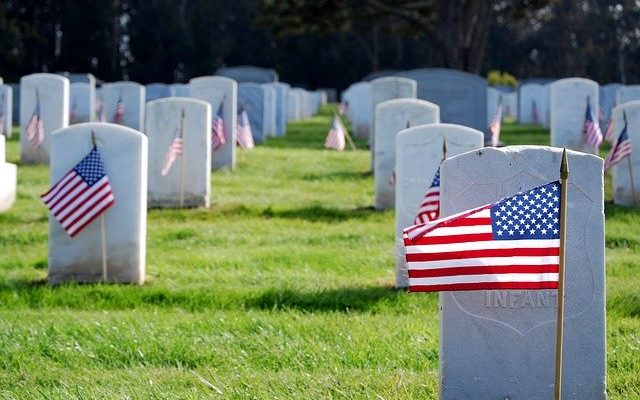Mounting studies published within the last two years have revealed that veterans are 15 times more likely to develop a post traumatic stress-related condition (alternately referred to as PTSD) than civilians.
While minimal mental health services were provided for veterans and active-duty military service members in times prior, World War I marked a turning point in psychological advancements pertaining to trauma-related conditions.
Since then, a growing number of mental health support systems and counseling programs, through both Veterans Affairs and independent and volunteer-run organizations, have been established.
Regardless of your age or whether you’re a veteran or in active duty, your military experience has no doubt left a lasting impact on your mental health and overall wellbeing. The challenges that face veterans returning to civilian life, coupled with existing trauma, may seem overwhelming and impossible to overcome but nothing could be further from the truth.
Connecting with other veterans, joining support groups, and speaking with professional counselors are just some of the ways veterans are reclaiming their mental wellness.
Here we’ll discuss the five different categories of mental health resources available for veterans, along with some highly rated providers to give you an idea of what’s available.
1. Helplines
Unlike emergency hotlines, helplines offer 24/7 trained phone support for those who need to share their feelings in moments of anxiety, panic, doubt, grief, anger or otherwise compromising moments. All calls remain anonymous, with operators fully trained and experienced in veteran health matters.
Where To Turn:
The National Veterans Foundation (1-855-811-4838) helps veterans and their families in times of crisis or critical need for outside help. Whether the matter pertains to mental health, finances, benefits disputes, or housing, NVF offers both referrals and outreach assistance for veterans in need.
For veterans who are struggling with mental health issues, particularly addiction and substance abuse, the Substance Abuse and Mental Health Services Administration (SAMHSA) helpline offers free and discreet direction towards local programs and facilities, with a full directory.
Veterans who are facing current or pending homelessness are advised to call the VA’s official hotline at 1-855-811-4838.
2. Clinic And Outreach
For veterans seeking onsite help, there are a number of local centers that offer professional and trained services at little to no cost.
Where To Turn:
The National Center For PTSD is the world’s leading research and educational center specializing in PTSD and trauma-related conditions. Among their many website features, the center offers a directory for veterans seeking local programs and clinic services.
Give An Hour is a volunteer-run organization that connects veterans with local mental health facilities and outreach programs, as well as access to mental health professionals offering free help for depression, PTSD, grief, anxiety, addictions, or other concerns.
All participating providers offering free 20 minute sessions can be found on the website’s featured directory The Homecoming For Veterans.
3. Peer Support
Sometimes the best help is knowing that you are not alone, and many veterans prefer to engage with and help one another directly. Recognized peer support programs are run by and for veterans, and offer free mental health counseling.
Where To Turn:
Military OneSource offers 24/7 peer support services for veterans, as well as their families and partners, with their Military and Family Life Counseling (MFLC) program featuring an around-the-clock call center operated by military and family life counselors who can speak over the phone or direct the caller to face-to-face counseling services.
The Real Warriors Campaign seeks to promote a culture of psychological health among veterans and active-duty service members alike.
Founded in 2009, the Real Warriors campaign “supports the Defense Department’s Psychological Health Center of Excellence in its mission to break the stigma associated with psychological health concerns and encourage those who are coping with a psychological health concern to seek help” (per the About Us page).
Vets 4 Warriors (toll free: 855-811-4838) offers veterans and active-duty military service members free and confidential support provided by other veterans.
4. Therapy And Online Counseling Services
Professional therapy has long been regarded as the leading mental health route, with many veterans opting to speak with an in-office practitioner. However, the online counseling paradigm has quickly gained momentum in recent years thanks to its discreet and convenient platform at a fraction of the cost of traditional professional therapy services.
Where To Turn:
While various sites may differ slightly in their approach, online therapy services are easy to use and don’t require you to leave the house or spend exorbitant amounts of money on a therapist. Typically, online therapy sessions are paid on a weekly basis (roughly $70) rather than per-visit (which can become expensive quickly at $300 per session).
Upon joining and signing up to an online therapy service, you will be matched with a qualified online therapist. Online therapy sessions are conducted via live face-to-face video chat or through secure back-and-fourth messaging. Some online counselors offer tele-therapy sessions over the telephone.
In terms of experience, online therapists are fully state-licensed and certified, with many specializing specifically in veterans’ mental health related issues such as PTSD. Popular online counseling services such as Talkspace and BetterHelp offer a more traditional user experience, whereas sites like 7 Cups utilize a peer support model.
Mission Reconnect is an evidence-based online therapy program that guides veterans and their partners through mind-body techniques and exercises aimed towards increasing mental calm, well-being, and resilience, as well as reestablishing a healthy physical existence.
5. Crisis Hotlines
In times of emergency or extreme crisis, veterans and concerned parties are strongly advised to call 911.
For situations pertaining to suicide or suicidal thoughts, the National Suicide Prevention Hotline (call 24/7 toll free at 1-800-273-TALK) has helped millions of callers, with a special Veterans Crisis line.
